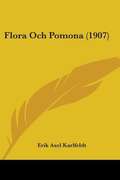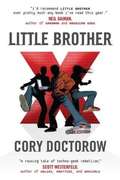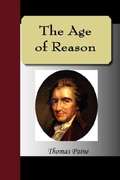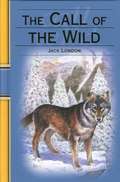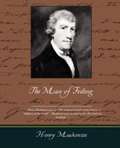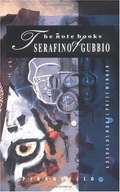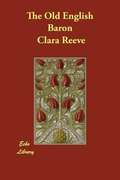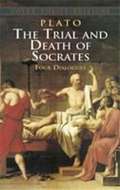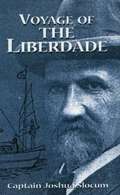- Table View
- List View
Can Alzheimer's Disease be Prevented?
by National Institutes on HealthLearning about risk factors you can't control, prevention strategies, what else can you do about Alzheimer's disease?
Getting a Feel for Lunar Craters
by David HurdThe text from a Braille, tactile book written for visually impaired people to feel what lunar craters are like.
Hadley Course Catalog
by The Editors at the Hadley School for the BlindThe course catalog from the Hadley School for the Blind, detailing their tuition-free distance education programs. With more than 100 courses across four program areas, find the course that is right for you, and join the 10,000 individuals worldwide who call themselves Hadley students.
Little Brother
by Cory DoctorowMarcus, aka "w1n5t0n," is only seventeen years old, but he figures he already knows how the system works-- and how to work the system. Smart, fast, and wise to the ways of the networked world, he has no trouble outwitting his high school's intrusive but clumsy surveillance systems. But his whole world changes when, having skipped school, he and his friends find themselves caught in the aftermath of a major terrorist attack on San Francisco. In the wrong place at the wrong time, Marcus and his crew are apprehended by the Department of Homeland Security and whisked away to a secret prison, where they're mercilessly interrogated for days. When the DHS finally releases them, Marcus discovers that his city has become a police state, where every citizen is treated like a potential terrorist. He knows that no one will believe his story, which leaves him only one option: to take down the DHS himself. Can one teenage hacker fight back against a government out of control? Maybe, but only if he's really careful . . . and very, very smart.
Mental Health: Culture, Race and Ethnicity
by US Department of Health and Human ServicesA supplement to Mental Health: A Report of the Surgeon General. Cross-cultural comparisons of blacks, North American Indians, Asian-Americans, Hispanic Americans, and whites.
The Call of the Wild
by Jack LondonFirst published in 1903, The Call of the Wild is regarded as Jack London's masterpiece. Based on London's experiences as a gold prospector in the Canadian wilderness and his ideas about nature and the struggle for existence, The Call of the Wild is a tale about unbreakable spirit and the fight for survival in the frozen Alaskan Klondike.
The Cheerful Cricket and Others
by Jeannette MarksA collection of 12 stories about how different insects and animals learn meaningful life lessons.
The Enchiridion
by EpictetusWritten in 135 AD, this book is a guide to the daily life of a slave in Greece.
The Man of Feeling
by Henry MackenzieHarley is the "Man of Feeling", He is a weak creature, dominated by a futile benevolence, who travels to London and falls into the hands of people who exploit his innocence. Harley helps the down-trodden, loses in love and is unsuccessful. Mackenzie asks the reader to decide whether sentimentality is morally correct or a luxury for the rich? Is morality possible in a complex commercial environment? The reader must decide for himself whether Harley is a saint or a fool.
The Notebooks of Serafino Gubbio
by Luigi Pirandello C. K. Scott MoncrieffSerafino is a typical Pirandellian anti-hero, a spectator rather than a participant in the tragi-comedy of human existence. Indeed he has the perfect job for it, that of a film cameraman. Serafino is an observer, an impersonal tool of a new industry based on make believe. All he has to do is to turn the handle of his camera and watch. He has no part in what is going on and is so removed from life that the mauling of an actor by a tiger can not deflect him from filming the action. It is set in Rome circa 1915, partly on a film lot, partly in the city.
The Old English Baron
by Clara ReeveClara Reeve (1729-1807), novelist, was the author of several novels, of which only one is remembered -- "The Old English Baron" (1777), written in imitation of, or rivalry with, the "Castle of Otranto" by Horace Walpole, 4th Earl of Orford, with which it has often been printed. Her novel has noticeably influenced Mary Shelley's "Frankenstein." Her innovative history of prose fiction, "The Progress of Romance" (1785), can be regarded generally as a precursor to modern histories of the novel and specifically as upholding the tradition of female literary history.
The Trial and Death of Socrates: Four Dialogues
by Plato Benjamin JowettAmong the most important and influential philosophical works in Western thought: Euthyphro, exploring the concepts and aims of piety and religion; Apology, a defense of the integrity of Socrates' teachings; Crito, exploring Socrates' refusal to flee his death sentence; and Phaedo, in which Socrates embraces death and discusses the immortality of the soul.
Voyage of the Liberdade
by Joshua SlocumIn 1890, the author became the first person to circumnavigate the globe alone. This is the account of one of his lesser-known but no less remarkable sea journeys. From the Publisher: Great 19th-century mariner's thrilling, account of the wreck of his ship off the coast of South America, the 35-foot brave little craft he built from the wreckage, and its remarkable, danger-fraught voyage home. A 19th-century maritime classic brimming with courage, ingenuity, and daring. Easy-to-read and fast-paced.
أخبار الحمقى و المغفلين
by ابن الجوزيقال ابن الأعرابي: الحماقة مأخوذة من حمقةالسوق إذا كسدت فكأنه كاسد العقل والرأي فلا يشاور ولا يلتفت إليه في أمر حرب. وقال أبو بكر المكارم: إنما سميت البقلة الحمقاء لأنها تنبت في سبيل الماء وطريق الإبل. قال: ابن الأعرابي: وبها سمي الرجل أحمق لأنه لا يميز كلامه من رعونته. الفرق بين الحماقة والجنون: فصل وقد ذكرنا ما يتعلق باللغة في هذا الاسم ولا يظهر المقصود إلا بكشف المعنى فنقول: معنى الحمق والتغفيل هو الغلط في الوسيلة والطريق إلى المطلوب مع صحة المقصود بخلاف الجنون فإنه عبارة عن الخلل في الوسيلة والمقصود جميعاً فالأحمق مقصوده صحيح ولكن سلوكه الطريق فاسد ورويته في الطريق الوصال إلى الغرض غير صحيحة والمجنون أصل إشارته فاسد فهو يختار ما لا يختار ويبين هذا ما سنذكره عن بعض المغفلين فمن ذلك: أن طائراً طار من أمير فأمر أن يغلق باب المدينة! فمقصود هذا الرجل حفظ الطائر. قال عليه السلام: " لا تؤاخي الأحمق فإنه يشير عليك ويجهد نفسه فيخطىء وربما يريد أن ينفعك فيضرك وسكوته خير من نطقه وبعده خير من قربه وموته خير من حياته ". وقال ابن أبي زياد: قال لي أبي: يا بني الزم أهل العقل وجالسهم واجتنب الحمقى فإني ما جالست أحمق فقمت إلا وجدت النقص في عقلي. لا تغضب على الحمقى: عن عبد الله بن حبيق قال: أوحى الله عز وجل إلى موسى عليه السلام " لا تغضب على الحمقى فيكثر غمك ". وعن الحسن قال: هجران الأحمق قربة إلى الله عز وجل. وعن سلمان بن موسى قال: ثلاثة لا ينتصف بعضهم من بعض حليم من أحمق وشريف من دنيء وبر من فاجر. الناس أربعة أصناف: وكذلك روينا عن الأحنف بن قيس أنه قال: قال الخليل بن أحمد: الناس أربعة رجل يدري ويدري أنه يدري فذاك عالم فخذوا عنه ورجل يدري وهو لا يدري أنه يدري فذاك ناسٍ فذكروه ورجل لا يدري وهو يدري أنه لا يدري فذاك طالب فعلموه ورجل لا يدري ولا يدري أنه لا يدري فذاك أحمق فارفضوه. وقال أيضاً: الناس أربعة فكلم ثلاثة ولا تكلم واحداً رجل يعلم ويعلم أنه يعلم فكلمه ورجل يعلم ويرى أنه لا يعلم فكلمه ورجل لا يعلم ويرى أنه لا يعلم فكلمه ورجل لا يعلم ويرى أنه يعلم فلا تكلمه. قال جعفر بن محمد: الرجال أربعة: رجل يعلم ويعلم أنه يعلم فذاك عالم فتعلموا منه ورجل يعلم ولا يعلم أنه يعلم فذاك نائم فأنبهوه ورجل لا يعلم ويعلم أنه لا يعلم فذاك جاهل فعلموه ورجل لا يعلم ولا يعلم أنه لا يعلم فذاك أحمق فاجتنبوه. الناس ثلاثة أصناف: وقد روينا عن أبي يوسف القاضي أنه قال: الناس ثلاثة: مجنون ونصف مجنون وعاقل فأما المجنون ونصف فأنت معهما في راحة وأما العاقل فقد كفيت مؤنته. عن الأعمش أنه قال: معاتبة الأحمق نفخ في بليسة. كل صديق لا عقل له عدو: عن عبد الله بن داود الحربي أنه قال: كل صديق ليس له عقل فهو أشد عليك من عدوك. عن بشر بن الحارث أنه قال: النظر إلى الأحمق سخنة عين. وسمعته يقول: يأتي على الناس زمان تكون الدولة فيه للحمقى. وعنه أنه قال: الأحمق سخنة عين غاب أو حضر. لا تجالس الأحمق: عن شعبة أنه قال: عقولنا قليلة فإذا جلسنا مع من هو أقل عقلاً منا ذهب ذلك القليل فإني لأرى الرجل يجلس مع من هو أقل عقلاً منه فأمقته. قال بعض الحكماء: مؤنة العاقل على نفسه ومؤنة الأحمق على الناس ومن لا عقل له فلا دنيا له ولا آخرة. كيف يعامل الأحمق: قال حكيم آخر: ليس كل أحد يحسن يعامل الأحمق وأنا أحسن أعامله قيل له كيف قال: أبخسه حتى يطلب الحق بعينه إذ متى أعطيته حقه طلب ما هو أكثر منه. وأنشدوا: المديد: إتق الأحمق أن تصحبه إنما الأحمق كالثوب الخلق كلما رقعت منه جانباً خرقته الريح وهناً فانخرق كحمار السوق إن أقضمته رمح الناس وإن جاع نهق أو غلام السوء إن أسغبته سرق الناس وإن يشبع فسق وإذا عاتبته كي يرعوي أفسد المجلس منه بالخرق .
السيف والنار فى السودان
by سلاطين باشاعدنا في التمهيد الذي وضعناه لكتاب "التاريخ السري لاحتلال انجلترا مصر" لمستر ويلفرد سكاون بلنت أن نصدر من بعده كتاب "السيف والنار في السودان" لسلاطين باشا, وهذان الكتابان يعدان من المستندات التاريخية التي لابد من الإطلاع عليها لمعرفة الحوادث التي تقلبت على مصر والسودان من خمسين سنة وهي الحوادث التي ما زلنا نعاني نتائجها إلى الآن. فاليوم ها نحن نبرز كتاب "السيف والنار في السودان" وفاء بذلك الوعد ورغبة في أن تكون له الفائدة المرجوة في خدمة تاريخ مصر الحديث. وسلاطين باشا، مؤلف هذا الكتاب، هو ضابط نمساوي ولد سنة 1857م في فيينا وجاء إلى مصر سنة 1878م ودخل في خدمتها فعينه غوردون باشا حاكمًا لدارفور سنة 1884 ولكن لم يمض عليه في منصبه هذا قليل حتى اعتقلته جيوش المهدي فبقى أسيرًا يَدعي الإسلام والإيمان بالمهدوية إلى سنة 1895م وحينئذ فر إلى الجيش المصري واشترك معه في استرداد دنقلة وأم درمان. وبقى سلاطين باشا بعد ذلك موظفًا في حكومة السودان بين سنة 1900 وسنة 1914 ثم أعلنت الحرب العالمية فترك الخدمة في السودان وعاد إلى النمسا ودخل في خدمة الصليب الأحمر. ولما عقدت الهدنة سنة 1918 انتدب عضوًا في بعثة الصلح في باريس. وقد نقل هذا الكتاب إلى اللغة الإنجليزية السير ونجت باشا الذي كان حاكمًا للسودان ثم معتمدًا لانجلترا في مصر. وهذه الترجمة الإنجليزية هي التي اعتمدنا عليها في التعريب.

